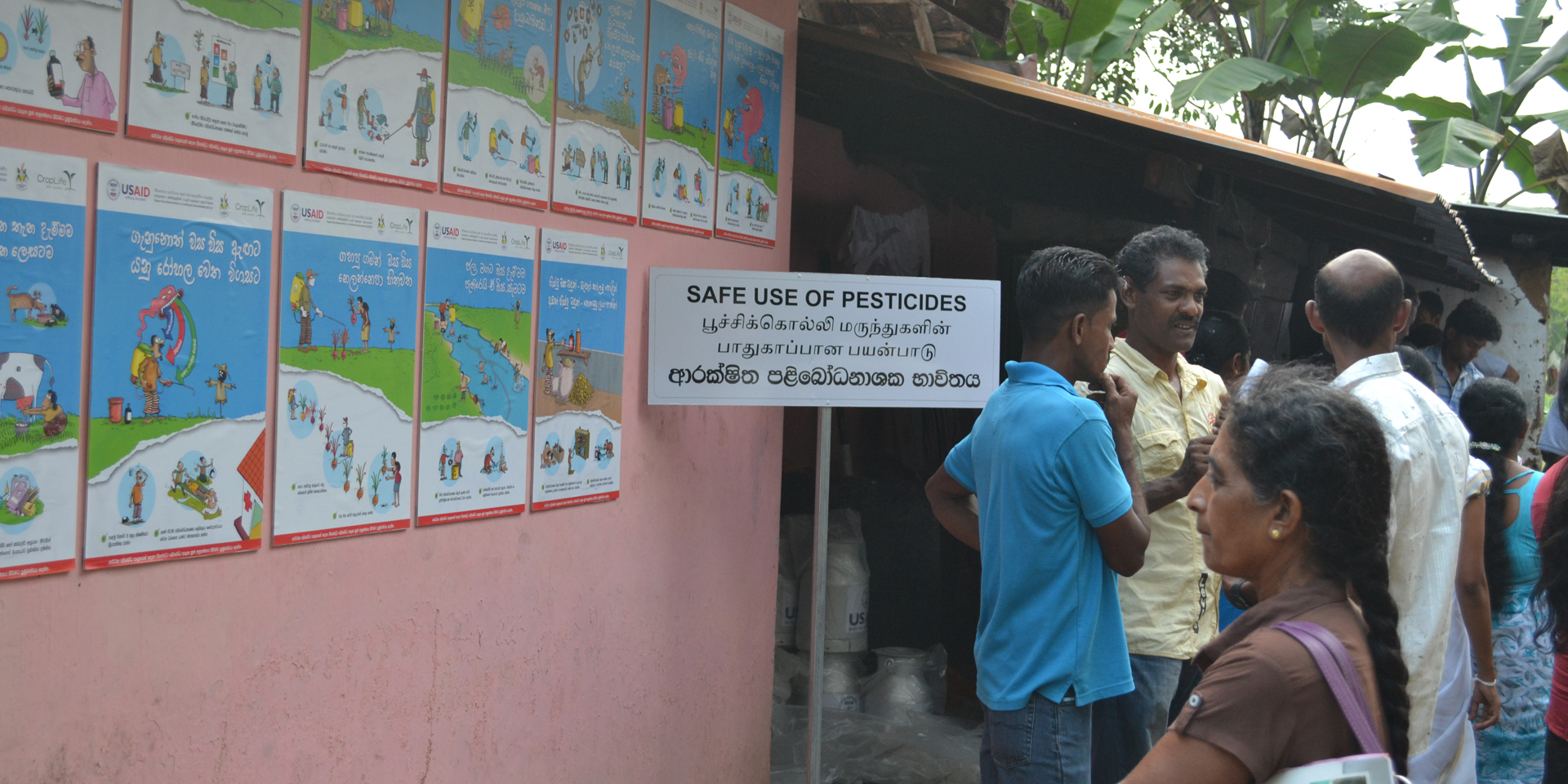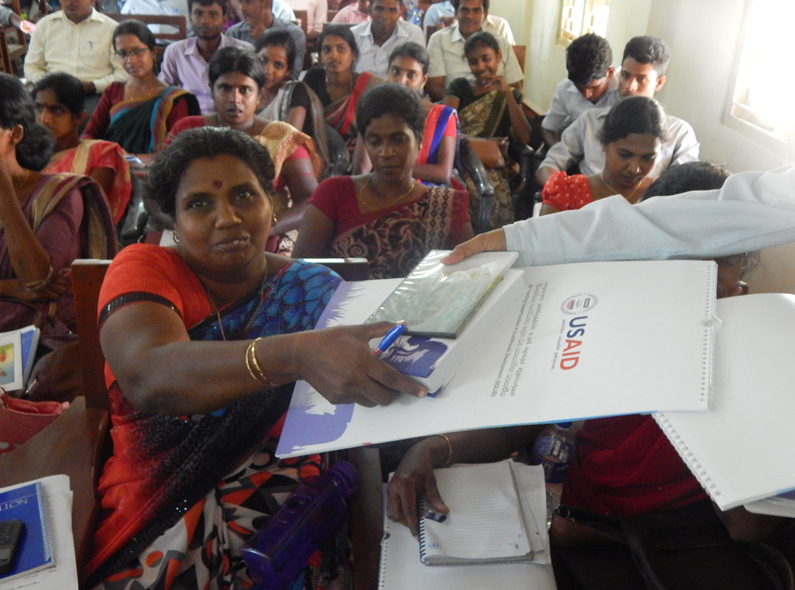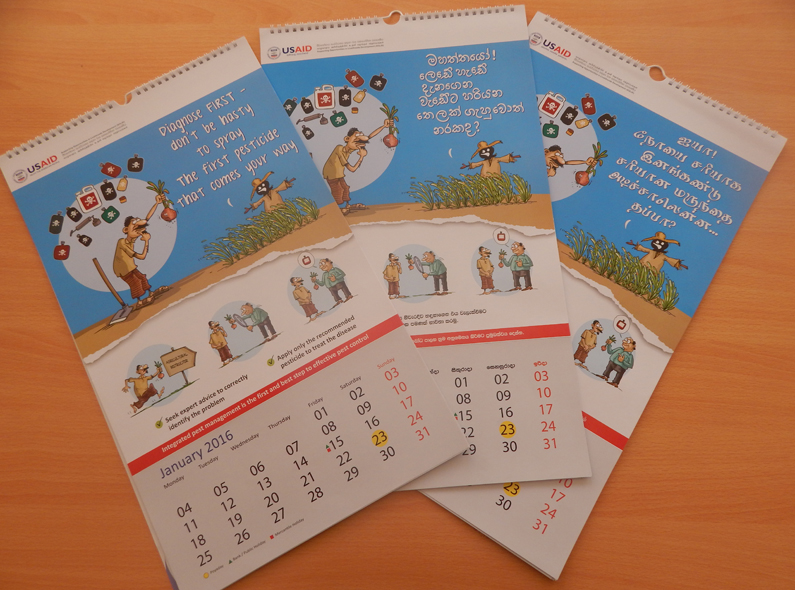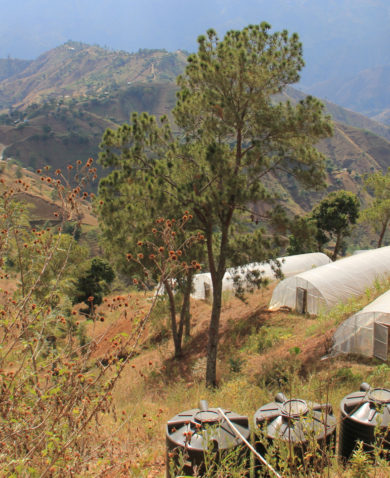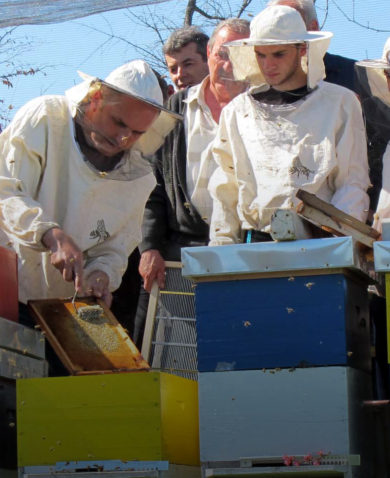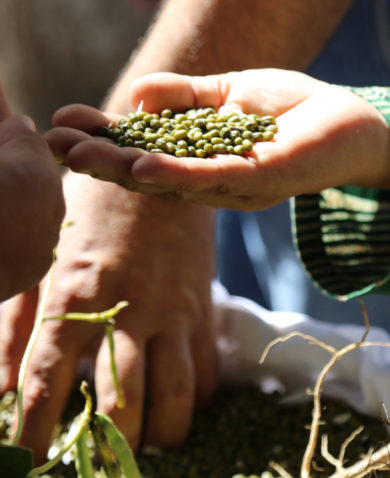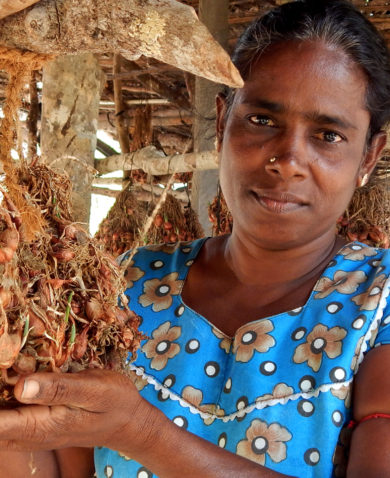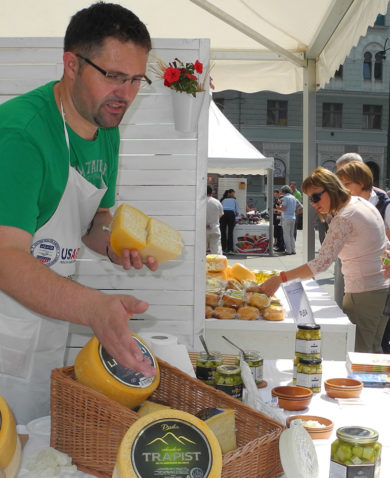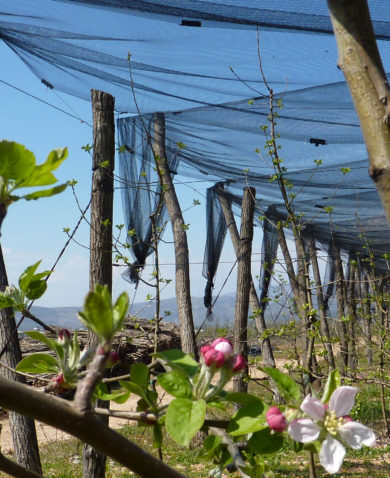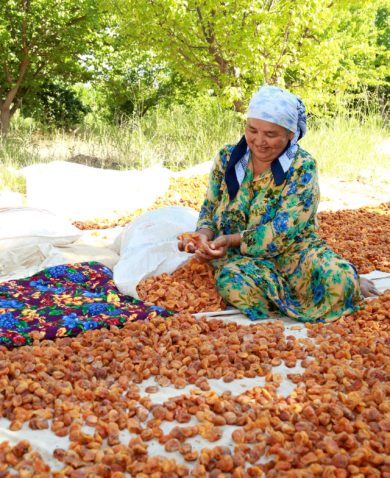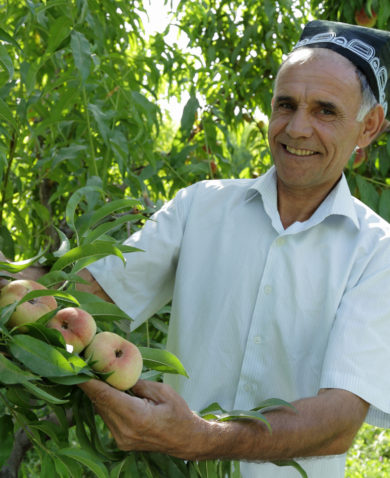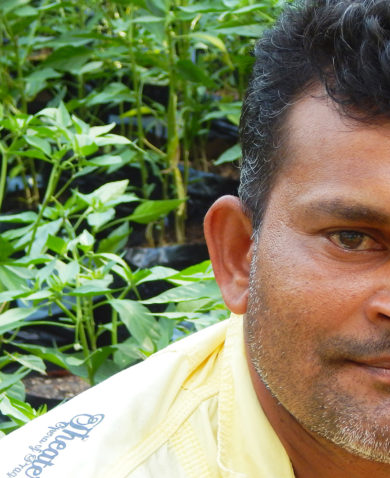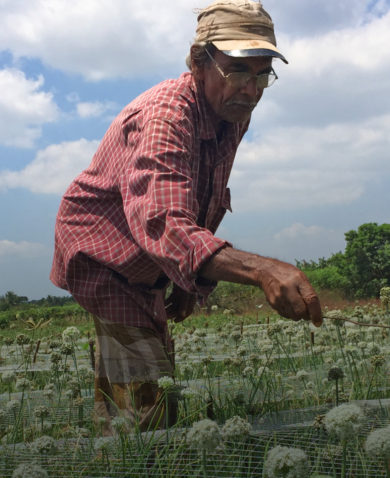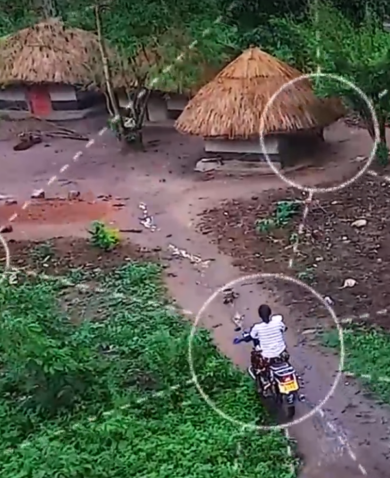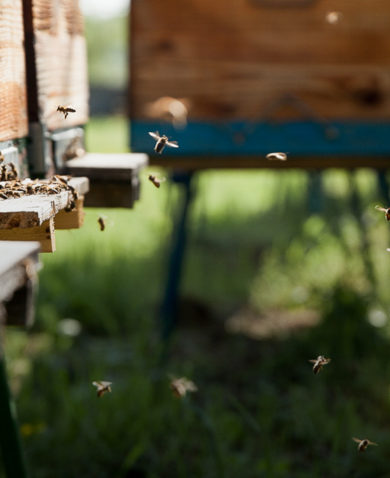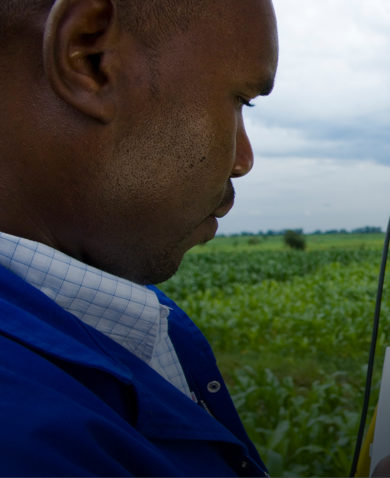Realizing that educating farmers was a key first step to changing behaviors, SOLID staff designed training and awareness activities to address these problems. The training encourages farmers to first use non-chemical methods of pest control and to turn to chemicals as a last resort. It also teaches methods for using pesticides and pest management responsibly and safely, as well as ways to minimize harm to the farmer, crop, environment, and community. In collaboration with its private sector partner, CropLife Sri Lanka, SOLID has trained 2,998 beneficiaries and 269 government officials as of April 2016.
Now in the project’s second year, SOLID is supplementing its training with an awareness campaign featuring videos, posters, calendars, and notebooks that deliver messages to a broader audience on using pesticides safely and responsibly. These materials address the main questions asked by farmers and problems identified by staff during their field visits.
The posters, calendars, and notebooks use cartoons to encourage safe pesticide use through simple and effective messages, all of which have been approved by the registrar of pesticides, the director general of agriculture, and CropLife Sri Lanka. The materials are produced in English, Sinhala, and Tamil — the three languages spoken in Sri Lanka. All farmers can learn from the cartoons, regardless of their literacy level or language.
The rationale behind the calendars and notebooks was that Sri Lankan farmers would be more likely to adopt these commonplace items in their everyday practices. As they use the items, they can naturally internalize the 14 key messages, including simple statements like “Do not buy pesticide containers that are opened, damaged, or leaking” and “Always read the pesticide label before using a pesticide.”
In the first round of printing in December 2015, SOLID produced 2,500 posters, 3,500 calendars, and 3,500 notebooks. Project beneficiaries, as well as government agricultural staff, private sector partners, and stakeholders, each received one calendar and one notebook. Since December, staff conducting field visits have seen farmers using the materials; many have even hung the calendars in their homes.
After Sri Lanka’s director general of agriculture and government agriculture staff requested additional posters, the project printed 8,400 more posters in Sinhala and Tamil. They will be displayed in 550 agrarian service centers and 50 district agriculture training centers throughout the country. Another 2,000 posters were printed to accommodate the requests of private sector partners, including major milk and agricultural produce companies, who will display the posters in their village collection facilities and offices.

